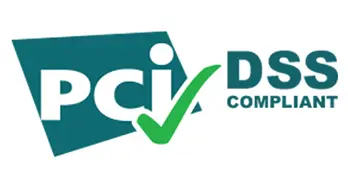PCI Compliance
inConcert Web Solutions is here to help you by providing a fully PCI compliant hosting environment. We manage all our hosting solutions to ensure they keep up with the ever changing PCI DSS standards. You’re in safe hands.
What is PCI Compliance?
The Payment Card Industry Data Security Standard (PCI DSS) is a set of requirements designed to ensure that all companies that process, store or transmit credit card information maintain a secure environment. Essentially any merchant that has a Merchant ID (MID). The Payment Card Industry Security Standards Council (PCI SSC) was launched on September 7, 2006 to manage the ongoing evolution of the Payment Card Industry (PCI) security standards with a focus on improving payment account security throughout the transaction process. The PCI DSS is administered and managed by the PCI SSC (www.pcisecuritystandards.org), an independent body that was created by the major payment card brands (Visa, MasterCard, American Express, Discover and JCB.). It is important to note that the payment brands and acquirers are responsible for enforcing compliance, not the PCI council.
Is PCI a law?
Compliance with PCI DSS is not required by federal law in the United States. However, the laws of some U.S. states either refer to PCI DSS directly, or make equivalent provisions.
What are the PCI compliance ‘levels’ and how are they determined?
All merchants will fall into one of the four merchant levels based on Visa transaction volume over a 12-month period. Transaction volume is based on the aggregate number of Visa transactions (inclusive of credit, debit and prepaid) from a merchant Doing Business As (‘DBA’). In cases where a merchant corporation has more than one DBA, Visa acquirers must consider the aggregate volume of transactions stored, processed or transmitted by the corporate entity to determine the validation level. If data is not aggregated, such that the corporate entity does not store, process or transmit cardholder data on behalf of multiple DBAs, acquirers will continue to consider the DBA’s individual transaction volume to determine the validation level.
Merchant levels as defined by Visa:
Merchant Level 1
Any merchant — regardless of acceptance channel — processing over 6M Visa transactions per year. Any merchant that Visa, at its sole discretion, determines should meet the Level 1 merchant requirements to minimize risk to the Visa system.
Merchant Level 2
Any merchant — regardless of acceptance channel — processing 1M to 6M Visa transactions per year.
Merchant Level 3
Any merchant processing 20,000 to 1M Visa e-commerce transactions per year.
Merchant Level 4
Any merchant processing fewer than 20,000 Visa e-commerce transactions per year, and all other merchants — regardless of acceptance channel — processing up to 1M Visa transactions per year.
* Any merchant that has suffered a breach that resulted in an account data compromise may be escalated to a higher validation level.
Do organizations using third-party processors have to be PCI DSS compliant?
Yes. Merely using a third-party company does not exclude a company from PCI DSS compliance. It may cut down on their risk exposure and consequently reduce the effort to validate compliance. However, it does not mean they can ignore the PCI DSS.
My company doesn’t store credit card data so PCI compliance doesn’t apply to us, right?
If you accept credit or debit cards as a form of payment, then PCI compliance applies to you. The storage of card data is risky, so if you don’t store card data, then becoming secure and compliant may be easier.
Am I PCI compliant if I have an SSL certificate?
No. SSL certificates do not secure a web server from malicious attacks or intrusions. High assurance SSL certificates provide the first tier of customer security and reassurance such as the below, but there are other steps to achieve PCI compliance.
· A secure connection between the customer’s browser and the web server
· Validation that the website operators are a legitimate, legally accountable organization
What is defined as ‘cardholder data’?
The PCI Security Standards Council (SSC) defines ‘cardholder data’ as the full Primary Account Number (PAN) or the full PAN along with any of the following elements:
· Cardholder name
· Expiration date
· Service code
Sensitive Authentication Data, which must also be protected, includes full magnetic stripe data, CAV2, CVC2, CVV2, CID, PINs, PIN blocks and more.
What is the definition of ‘merchant’?
For the purposes of the PCI DSS, a merchant is defined as any entity that accepts payment cards bearing the logos of any of the five members of PCI SSC (American Express, Discover, JCB, MasterCard or Visa) as payment for goods and/or services. Note that a merchant that accepts payment cards as payment for goods and/or services can also be a service provider, if the services sold result in storing, processing, or transmitting cardholder data on behalf of other merchants or service providers. For example, an ISP is a merchant that accepts payment cards for monthly billing, but also is a service provider if it hosts merchants as customers.

